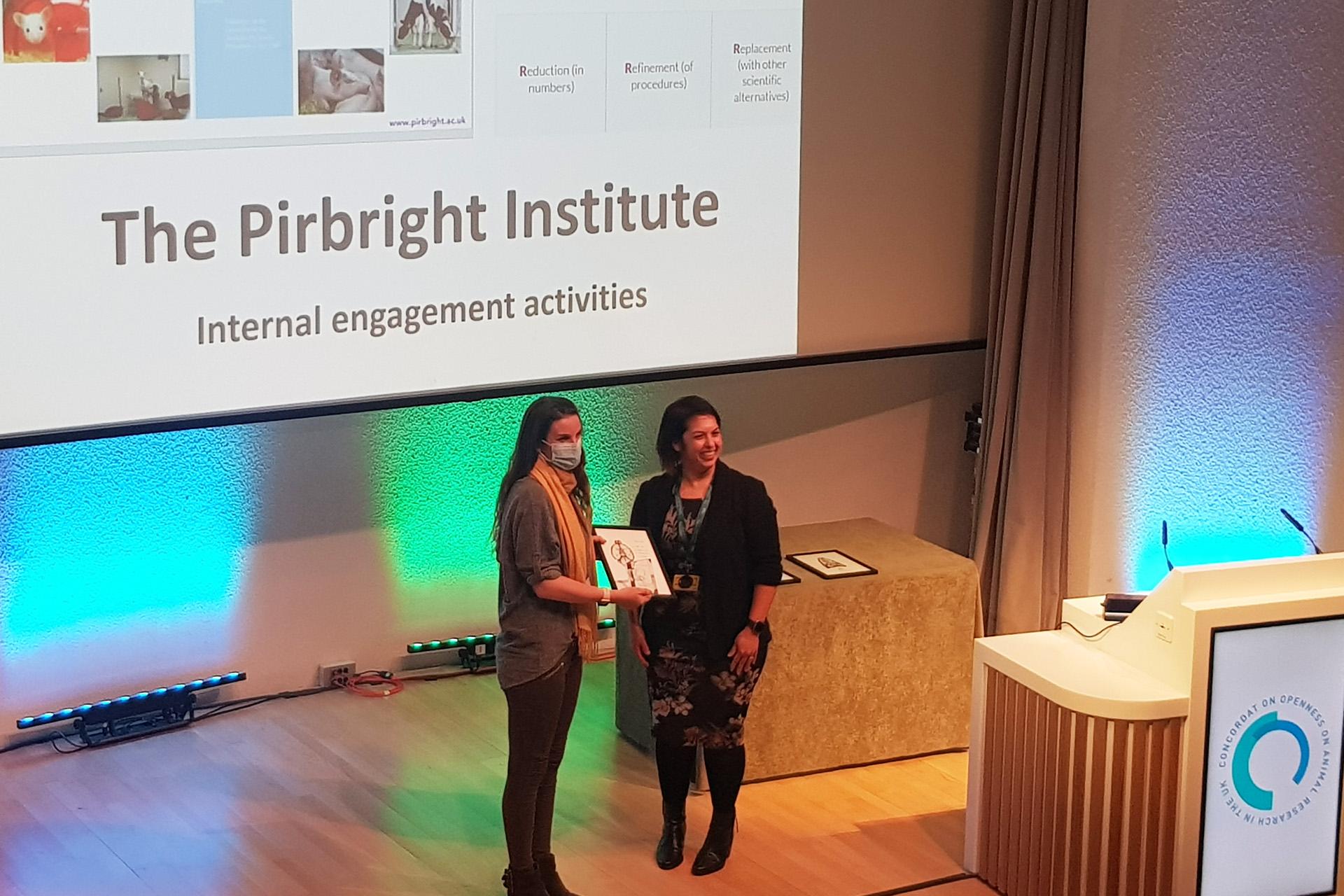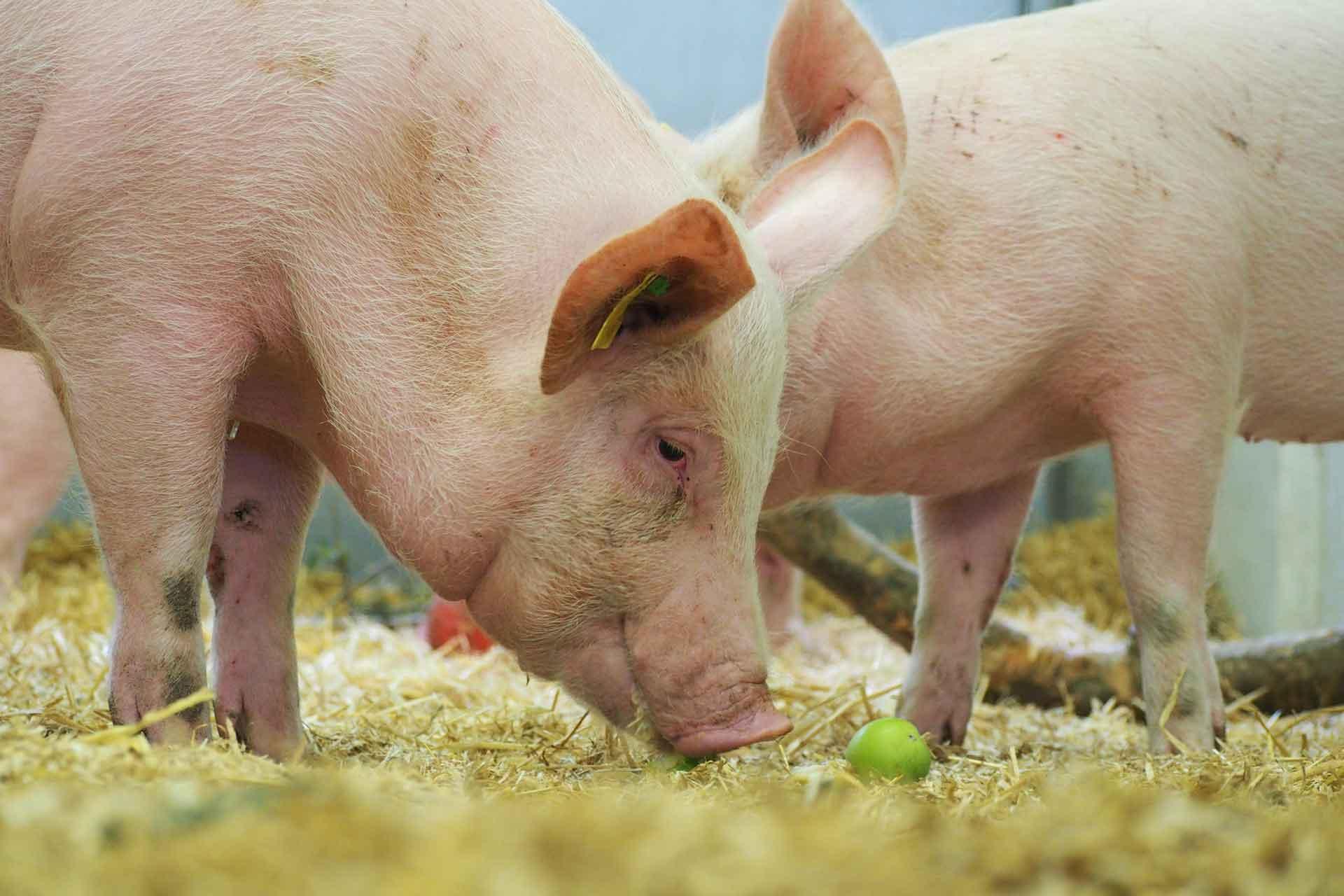A member of the animal services team at The Pirbright Institute has been elected to the council of the UK’s leading expert body on the care of animals used in experimental studies.
Lauren Cresser, Home Office Liaison Contact and Named Information Officer at The Pirbright Institute, has accepted a four-year position as a Council Member of the Laboratory Animal Science Association (LASA).
Founded in 1963, LASA is a consortium of industrial, university, ministry and research council representatives.
Its mission is to advance scientific understanding and knowledge of the use, care and welfare of laboratory animals and promote replacement, reduction and refinement.
Lauren said: “I am really proud and honoured to have been accepted onto the LASA Council. Membership will provide me personally, and The Pirbright Institute, with a great opportunity to help shape the future of laboratory animal science in the UK and elsewhere.”
Lauren has worked at the Institute for over a decade. As Pirbright’s Named Information Officer under the Animals (Scientific Procedures) Act 1986, Lauren is responsible for ensuring the Institute meets the commitments of the Act, and fulfils its obligations as a signatory of the Concordat on Openness on Animal Research in the UK.
Pirbright won the Internal Engagement category at the eighth annual Understanding Animal Research (UAR) Openness Awards in 2021 for its exemplary approach to internal engagement practices, and its joined-up approach to research to ensure clarity and transparency around our research with animals.

Institute Director, Professor Bryan Charleston, said: “Lauren’s leadership will prove a valuable addition to LASA. She has been instrumental in encouraging a culture of care and well-being within the workplace by promoting good animal welfare practices. Pirbright is transparent and open about the proportionate use of animals in research leading to the development of new viral disease control methods such as veterinary vaccines and diagnostics for food producing animals.”
Find out more about our work with animals.
